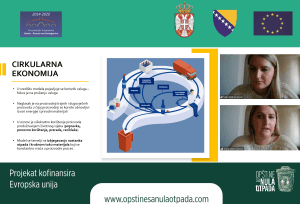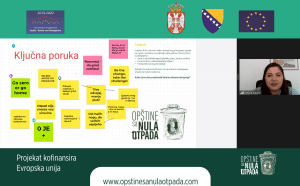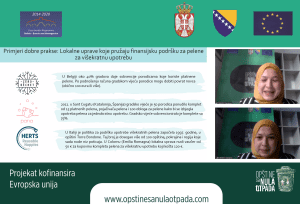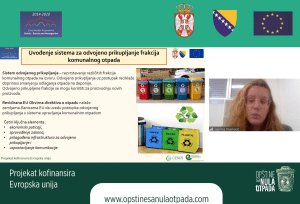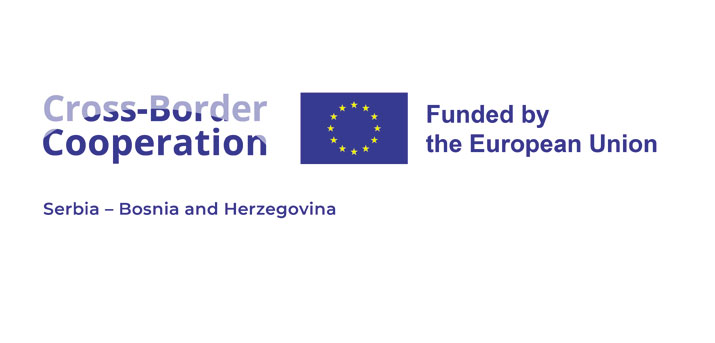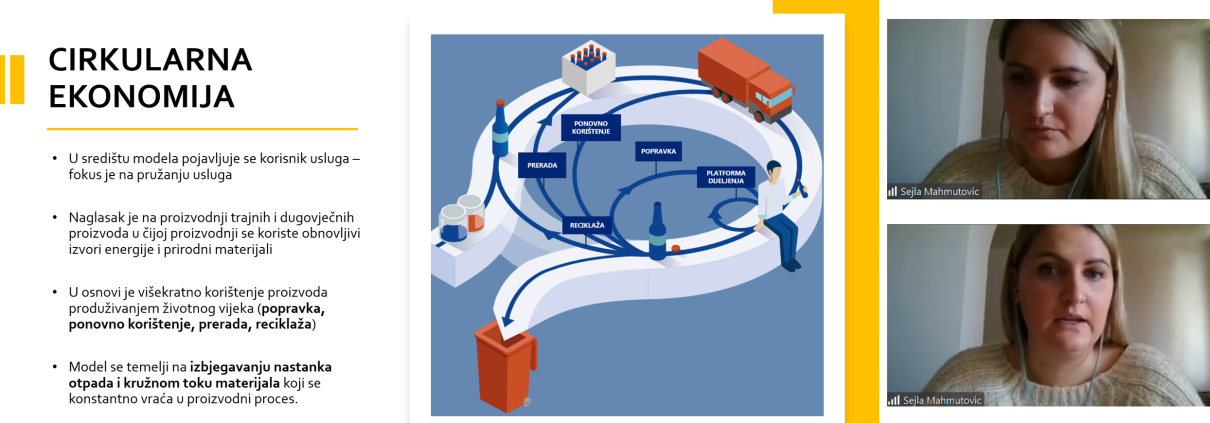Within the project “Zero waste municipalities” a training program entitled “Training of initiatives for the introduction of the concept of zero waste in local communities” was held on February 24 and 25, 2022.
The aim of the training was to strengthen the capacities of local actors in the field of waste management and environmental protection, to improve the waste management system by applying strategies and practices for achieving zero waste by adequate monitoring and reporting on the success of their implementation.
This virtual event gathered 178 participants, including representatives of public utility companies, local governments, system operators, waste collectors, social enterprises, NGOs, green entrepreneurs, academia and other relevant institutions. A total of 8 lecturers from Bosnia and Herzegovina and Serbia shared their knowledge and experiences with participants and presented a series of examples of good practices based on the principles of zero waste in order to motivate participants to implement similar initiatives in their local communities.
The educational part of the training program was opened by Šejla Mahmutović, President of the Center for Energy, Environment and Resources – CENER 21 (Sarajevo) and project manager, presenting the purpose and objectives of the project, project activities and the concept of zero waste at the local level. development.
At the first day of the training participants were introduced the technical part of strategies for achieving zero waste at the local level through examples of best available practices and proven technologies in the field.
During the second day of the training program, the lecturers focused on presenting strategies to support business models based on the principles of zero waste, the application of economic incentives, and communication methods to involve the local community in the transition to zero waste.
The educational training concluded with the presentation of communication tools and strategies for involving public opinion in the local community in the process of introducing the principle of zero waste, and an interactive workshop during which participants created a communication strategy for presenting local initiatives.
